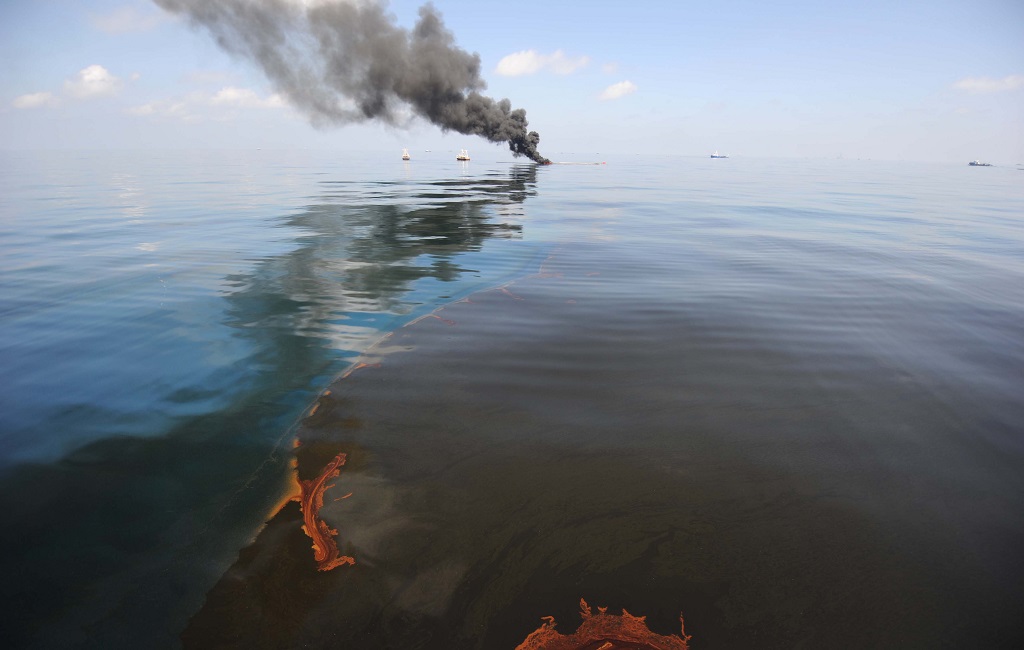It Begins With The Sea. And If We’re Not Careful, That’s Where It All Will End.

(Written by Alaska Wilderness League Guardian and author John Copp. John is a former software engineer who has spent many years fishing Bristol Bay, and studying marine life and subsistence hunting. John’s new novel is an action-thriller about saving imperiled goose populations on Alaska’s Yukon Delta National Wildlife Refuge.)
This article is about the Arctic. Not just its remoteness, its beauty or its wildlife. No, instead I’m going to focus on its importance to the survival of one particularly stubborn and wayward species. Homo sapiens. A species which, in a century or two, may possibly go extinct.
Over and over again I’ve watched a video of a 19,000-ton oil rig that recently blew ashore in Scotland. The film renders moot the endless propaganda from drilling companies proclaiming it safe to drill in the Arctic because of “new and improved” engineering procedures. Nothing has changed, above all the immense power of the sea.
The 19,000-ton drilling rig, Transocean Winner, was being towed west of Scotland’s Isle of Lewis when it was hit by the harsh weather.
I can attest to that after years commercial fishing on Alaska’s Bristol Bay. When big storms hit, my 32 foot, 15-ton fishing boat gets tossed around like a bathtub toy. And yet the dangers of weather and sea alone are not sufficient to offset the mixture of courage, greed and adventure-seeking that drives roughnecks to drill for oil and fishermen to fish in places common sense would suggest avoiding.
I myself have fished in 50-60 knot winds. And back in 1987, in the infamous 4th of July storm, with 113 knot winds blowing on the Bay, men were still out there trying to lay net. There’s a fine line between bravery and insanity. And there is always someone willing to cross it. Including myself, I hate to admit.
Arctic ecosystems were once accessible only to those brave enough to risk fierce weather, dangerous animals and vast emptiness. In the late twentieth century, however, vast pools of oil lured the first major industrial incursions into the Arctic. Today, the relentless burning of fossil fuels has changed the game yet again. Climate change has opened up a vast region that once inspired fear and avoidance.
But relax, because oil exploration today is totally safe! At least that’s what the owners of the 19,000-ton oil rig probably thought before starting their long tow. Ditto the owners of the Exxon Valdez, Deep Water Horizon, and Shell prior to its calamitous Arctic experience. Each time, disaster was preceded by the same promises: It Can’t Happen Here, It’s Different This Time, We Know What We’re Doing. Same promises. Same disastrous outcomes.
The Deepwater Horizon disaster in the Gulf of Mexico, 2010. (Photo: U.S. Coast Guard)
I’m only too familiar with the Exxon Valdez spill. I backed out of buying a Prince William Sound commercial fishing operation the day it happened. Flew over it next morning. The oil was in a small circle around the boat and could easily be contained. But it wasn’t. The pictures of oil-soaked animals on Prince William Sound are lodged in my memory forever. No surprise I keep thinking of that 19,000-ton oil rig. It’s twelve hundred times heavier than a Bristol Bay boat. But the sea treats both with equal disdain.
An oil-covered otter following the Exxon Valdez spill in 1989. (Photo: ARLIS Alaska Resources Library and information Services)
To believe there will be no disastrous consequences if the Arctic is opened to industrial development, uncontrolled resource extraction or enormous tourist ships is an illusion. Our knowledge of global ecosystems is still in its infancy. During the 12,000 years since we first domesticated plants and animals, the climate has remained extraordinarily mild, allowing human populations to explode. The polar ice caps have been a constant presence for centuries. We have no idea what will happen when we destroy them as we are doing now.
The Arctic Ocean provides habitat for countless species of wildlife and is central to life in coastal communities. Many of America’s most iconic marine creatures thrive here, including whales, walrus, seals and more. The Arctic Ocean also plays an important role in regulating the world’s climate, and whether or not we develop there will have a major impact on efforts to address climate change.
So are we wise enough to avoid creating risk we cannot contain? Life began in the sea. And if we don’t wise up soon, that’s where it will all end.



